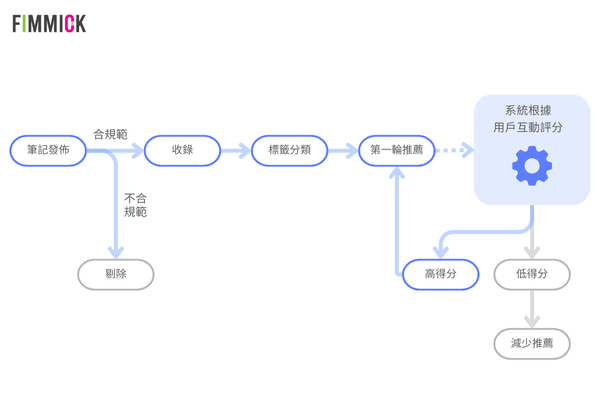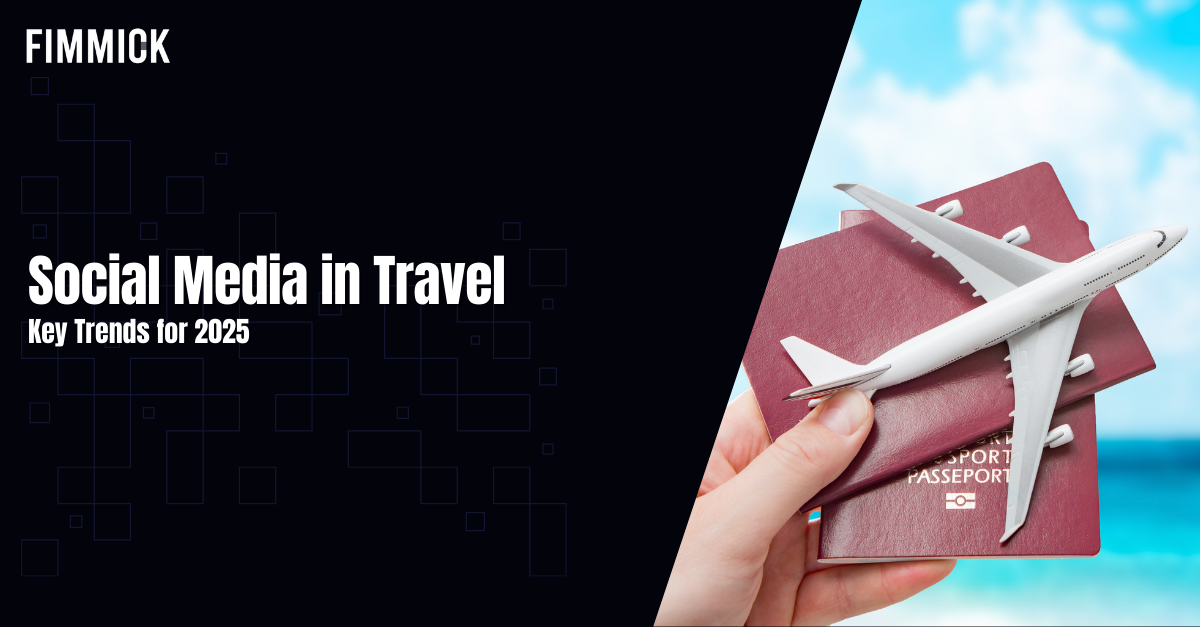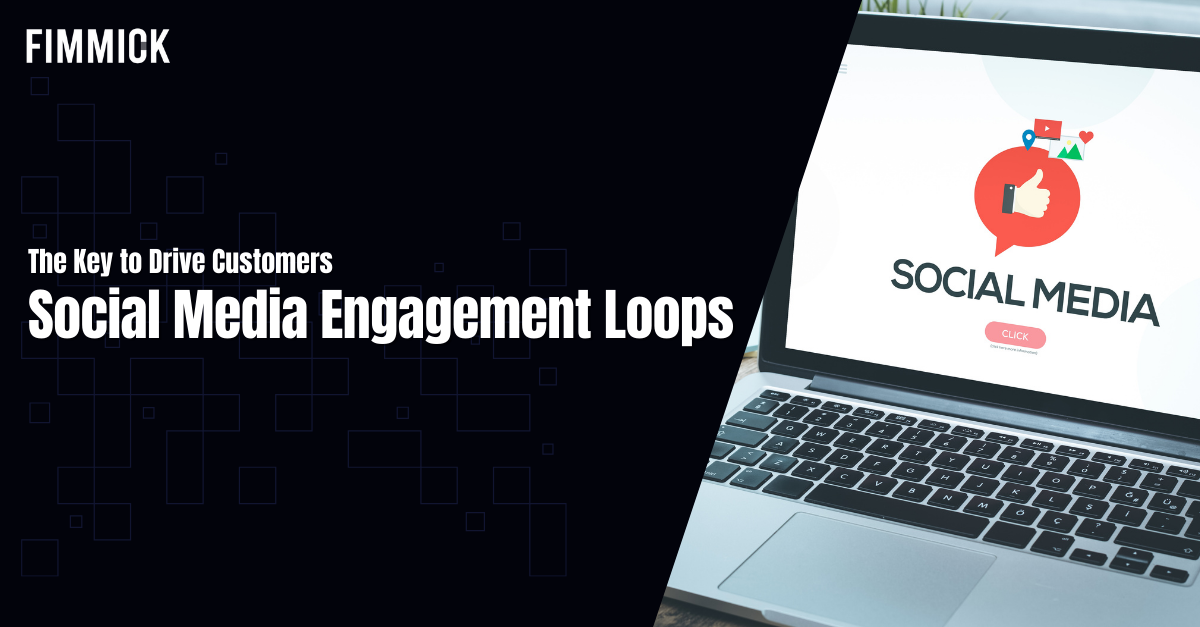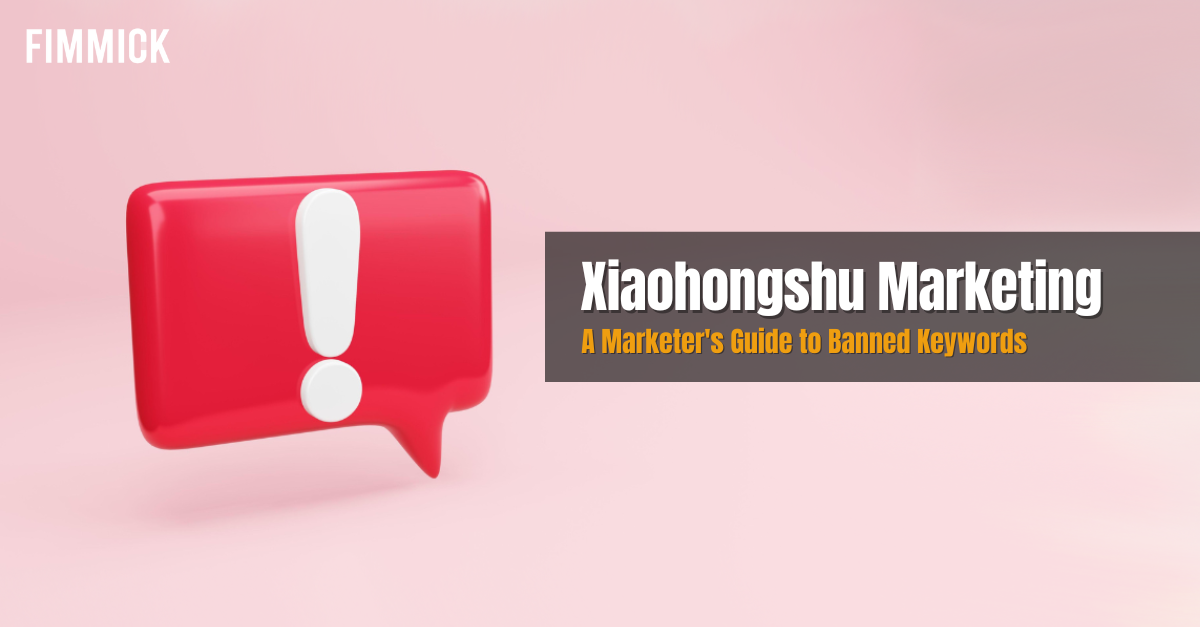Content Marketing: Xiaohongshu Marketing – A Marketer’s Guide to Banned Keywords
Home » Content Marketing » Content Marketing: Xiaohongshu Marketing – A Marketer’s Guide to Banned Keywords
Reading Time: 5 min
Xiaohongshu, also known as Little Red Book, has become a go-to platform for brands seeking to engage with Chinese consumers. However, unfamiliar with China’s social media intricacies, Hong Kong brands often unknowingly use words that trigger shadowbans in their content, limiting visibility and reach. Let’s examine why sensitive terms come to be and understand which key phrases to avoid for optimal performance on this influential platform.
How the Xiaohongshu Algorithm Works
Xiaohongshu’s recommendation algorithm, at its core, aims to promote high-quality content that resonates with its user base. When a user publishes a note (post), the platform’s algorithm, known as CES (Community Engagement Score), springs into action. It meticulously analyses user interactions such as likes, comments, saves, shares, and even follows to gauge the post’s overall quality and popularity. Based on this analysis, the algorithm determines the reach and visibility of the post, pushing engaging content to a broader audience.
Introduced in 2017, CES initially assigned points to different engagement actions: 1 point for likes and saves, 4 points for shares and comments, and 8 points for follows. However, Xiaohongshu’s recommendation system has evolved significantly since then, incorporating a more comprehensive and diverse set of metrics. To maximise your reach, brands and creators need to stay informed about the platform’s latest updates and algorithm adjustments.
Explore Further: Why Your Brand Needs KOCs on Xiaohongshu

The Impact of Prohibited Keywords on Xiaohongshu Content Visibility
Xiaohongshu operates under unique community guidelines and content policies that diverge significantly from Western social media platforms such as Facebook, Instagram or LinkedIn. Posting content deemed inappropriate by Xiaohongshu can result in various penalties, ranging from warnings to temporary posting or commenting restrictions. These restrictions typically last 24 hours, seven days, 14 days, or a month. In more severe cases, violations may even lead to indefinite account suspension.
Explore Further: What is Instagram Shadown Ban?
A Guide to Xiaohongshu's Restricted Keywords
To ensure your content thrives on Xiaohongshu, it’s crucial to understand and avoid common keyword pitfalls that can trigger content restrictions. These commonly come under three categories.
Words Implying Superiority
- Superlative Adjectives: Terms like “top-tier,” “super,” “high-level,” and “world-class” are often perceived as exaggerated claims and should be used cautiously.
- “Top” and “Leading” Variations: Words such as “top-notch,” “leading brand,” “pioneering,” and “frontrunner” can also raise red flags for similar reasons.
- Rank-Specific Claims: Using definitive rankings like “No. 1,” “best brand,” or “top-rated” violates the platform’s neutrality principles.
- “First” and “Original” Claims: Phrases like “first-ever,” “groundbreaking technology,” and “top choice” imply exclusivity and should be avoided.
Problematic Language
- Absolute Claims: Words like “must-buy,” “must-visit,” “unparalleled,” and “best value” are overly assertive and may trigger restrictions.
- Exaggerated Marketing Language: Phrases like “highly recommended,” “amazing results,” “don’t miss out,” and “limited-time offer” can come across as inauthentic and exaggerated.
- Promises and Guarantees: Avoid using language that guarantees specific outcomes, such as “guaranteed effective,” “lose 10 pounds guaranteed,” or “money-back guarantee,” as these can raise concerns about unrealistic expectations.
Industry Specific Keywords
- Financial and Investment Terms: Be cautious when using words related to finance and investment, such as “high returns,” “guaranteed stock growth,” “publicly listed company,” and “mutual funds,” as these are sensitive areas that require careful consideration.
- Superstitious Content: Avoid using language related to superstition or fortune-telling, such as “enhance your sixth sense,” “feng shui essentials,” “ward off negativity,” or “bring good luck,” as these topics may be deemed inappropriate.
While this list provides a general overview, it’s essential to remember that context matters. When promoting your brand on Xiaohongshu, prioritise neutral and objective language. Focus on highlighting the inherent features and benefits of your products or services. Always refer to Xiaohongshu’s official community guidelines to ensure your content aligns with their latest policies.
FIMMICK's Xiaohongshu Marketing Service
Want to see your brand organically trending on Xiaohongshu? Our data-driven approach combines strategic KOC collaborations with impactful content seeding. We identify the perfect KOCs to authentically showcase your brand and strategically plant your message across the platform, sparking conversations and driving organic engagement that translates into tangible results. Let our expertise in Xiaohongshu marketing amplify your brand’s voice and deliver measurable success.

Conclusion
Mastering the intricacies of Xiaohongshu’s content guidelines and understanding its unique algorithm is crucial for any brand or creator seeking to thrive on this vibrant platform. By familiarising yourself with the nuances of prohibited keywords and embracing a content strategy that prioritises authenticity, value, and user engagement, you can navigate the intricacies of Xiaohongshu and unlock its immense potential for connecting with a highly engaged audience. Remember, transparency, creativity, and a genuine understanding of the community are vital to building a successful and sustainable presence on Xiaohongshu.
Ready to take your business to the next level? Join us on Facebook and Instagram for more insights and tips on digital marketing, AI, MarTech and data. If you are interested in our services, please contact us!
Related Solutions
Related Articles

Content Marketing: Social Media in Travel – Key Trends for 2025
Is your travel marketing ready for 2025? Explore the evolving landscape of social media and its impact on the travel industry.

AI: AI Generated Content on Meta: Will it Reshape Social Media Feeds
Meta’s using AIGC to reshape Facebook and Instagram. Learn how brands can adapt and thrive in this new AI-driven landscape.

Content Marketing: Social Media Engagement Loops – The Key to Drive Customers
Discover how to integrate engagement loops into your social media marketing plan and turn passive followers into active, paying customers.









